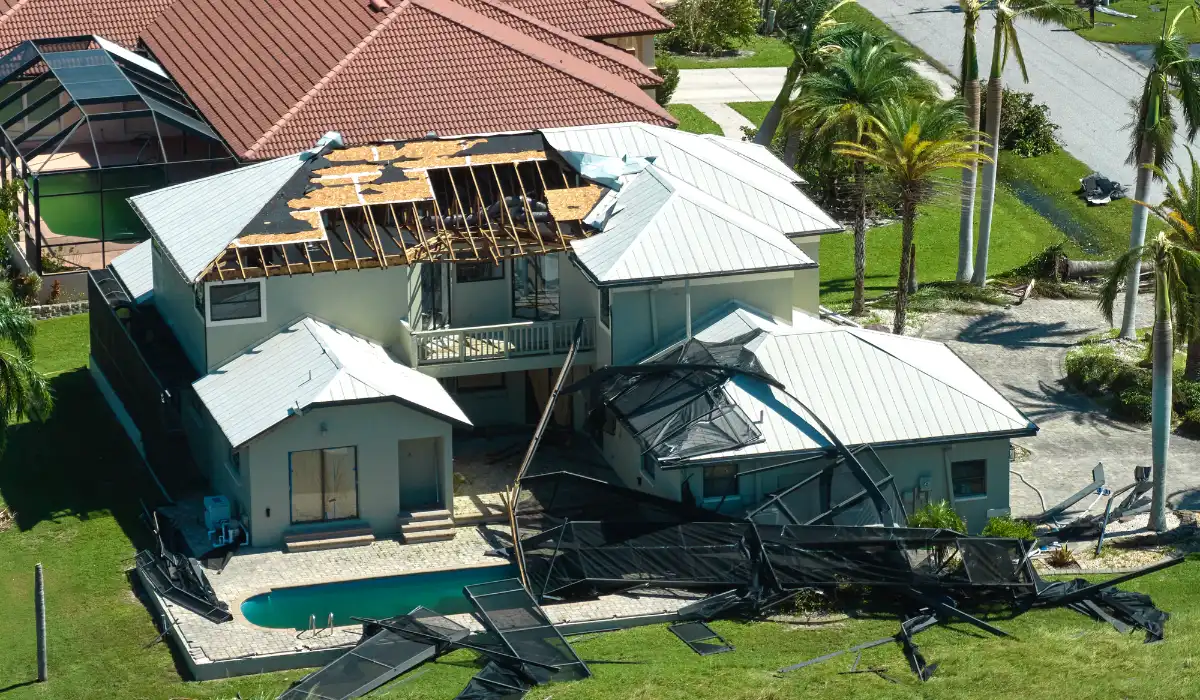Property damage can be a stressful and costly ordeal. Whether it’s due to natural disasters, accidents, or vandalism, dealing with the aftermath can be overwhelming. This is where a property damage lawyer comes into play. Understanding when and why you might need a property damage lawyer can make a significant difference in how you handle your claim and ensure you receive the compensation you deserve.
What is a Property Damage Lawyer?
A property damage lawyer specializes in handling claims related to damage to personal or commercial property. These legal professionals have extensive knowledge of property laws, insurance policies, and the claims process. They advocate on behalf of their clients to ensure fair settlements and help navigate the often complex legal landscape associated with property damage claims.
When you need a Property Damage Lawyer?
– Insurance claim denials: If your insurance company denies your claim, a property damage lawyer can help you challenge the decision. They will review your policy, gather evidence, and negotiate with the insurer on your behalf. Insurance companies often deny claims based on technicalities or insufficient evidence. A lawyer can identify these issues and present a compelling case to overturn the denial.
– Underpayment of claims: Sometimes, insurance companies may offer settlements that are significantly lower than the actual cost of repairs. A property damage lawyer can assess the true value of your damages and fight for a fair payout. They will work with contractors, appraisers, and other experts to determine the accurate cost of repairs and replacement.
– Disputes over liability: In cases where there is a dispute over who is responsible for the damage, a property damage lawyer can help establish liability. They will collect evidence, interview witnesses, and build a strong case to support your claim. This is particularly important in situations involving multiple parties, such as car accidents or construction defects.
– Complex claims: Certain property damage claims, such as those involving multiple parties or extensive damage, can be complicated. A property damage lawyer has the expertise to manage these complexities and ensure all aspects of your claim are addressed. For instance, claims involving fire damage, water damage, or mold can require specialized knowledge and coordination with various experts.
Why you need a Property Damage Lawyer?
– Expertise and knowledge: Property damage lawyers have specialized knowledge of property laws and insurance policies. They understand the intricacies of the claims process and can provide valuable guidance and advice. Their expertise ensures that you are aware of your rights and the best course of action to take.
– Maximizing compensation: A property damage lawyer will work to ensure you receive the maximum compensation for your losses. They will accurately assess the value of your damages and negotiate with the insurance company to secure a fair settlement. This includes considering not only the immediate repair costs but also potential long-term impacts and additional expenses.
– Reducing stress: Dealing with property damage can be stressful, especially when navigating the claims process. A property damage lawyer can handle the legal aspects of your claim, allowing you to focus on recovering and rebuilding. They will manage communications with the insurance company, gather necessary documentation, and handle any disputes that arise.
– Legal representation: If your case goes to court, having a property damage lawyer on your side is crucial. They will represent you in legal proceedings, present evidence, and advocate for your best interests. Court cases can be complex and intimidating, but a skilled lawyer will guide you through the process and strive for a favorable outcome.
How to choose the right Property Damage Lawyer?
– Experience: Look for a lawyer with extensive experience in handling property damage claims. An experienced lawyer will have a proven track record of successful settlements and a deep understanding of property laws. They will be familiar with common tactics used by insurance companies and know how to counter them effectively.
– Reputation: Research the lawyer’s reputation by reading reviews and testimonials from previous clients. A reputable lawyer will have positive feedback and a history of satisfied clients. You can also check with local bar associations or legal directories for additional information.
– Communication: Choose a lawyer who communicates clearly and promptly. Effective communication is essential for understanding the progress of your case and making informed decisions. Your lawyer should be accessible and willing to answer your questions throughout the process.
– Fees: Discuss the lawyer’s fee structure upfront. Many property damage lawyers work on a contingency fee basis, meaning they only get paid if you win your case. Ensure you understand the terms and any additional costs involved. This arrangement can provide peace of mind, knowing that your lawyer is motivated to achieve the best possible outcome for you.
Common types of property damage claims
– Natural disasters: Hurricanes, tornadoes, earthquakes, and floods can cause extensive property damage. A property damage lawyer can help you navigate the complexities of filing claims for these events, ensuring you receive adequate compensation for repairs and rebuilding.
– Fire and smoke damage: Fires can devastate homes and businesses, leaving behind significant damage. A lawyer can assist in assessing the full extent of the damage, including smoke and water damage from firefighting efforts, and negotiate with your insurance company for a fair settlement.
– Water damage and mold: Leaks, burst pipes, and flooding can lead to water damage and mold growth, which can be hazardous to health. A property damage lawyer can help you address these issues and ensure your insurance covers the necessary repairs and remediation.
– Vandalism and theft: If your property is damaged due to vandalism or theft, a lawyer can help you file a claim and seek compensation for repairs and lost items. They can also assist in dealing with law enforcement and any legal proceedings related to the incident.
The claims process
– Initial assessment: Your lawyer will conduct an initial assessment of the damage and review your insurance policy to determine coverage. They will identify any potential issues and develop a strategy for your claim.
– Documentation and evidence: A property damage lawyer will gather all necessary documentation and evidence to support your claim. This may include photographs, repair estimates, witness statements, and expert reports.
– Negotiation: Your lawyer will negotiate with the insurance company on your behalf, seeking a fair settlement that covers all your damages. They will handle all communications and ensure that your rights are protected throughout the process.
– Litigation: If a fair settlement cannot be reached, your lawyer may recommend taking your case to court. They will represent you in legal proceedings, present evidence, and advocate for your best interests.
Conclusion
A property damage lawyer can be an invaluable ally when dealing with property damage claims. Whether you’re facing insurance claim denials, underpayments, or complex disputes, having a knowledgeable and experienced lawyer on your side can make all the difference. By understanding when and why you might need a property damage lawyer, you can take the necessary steps to protect your rights and secure the compensation you deserve. If you find yourself in a challenging property damage situation, don’t hesitate to seek the expertise of a property damage lawyer to guide you through the process. Their support can help you navigate the complexities of your claim, reduce stress, and ensure a fair outcome.


